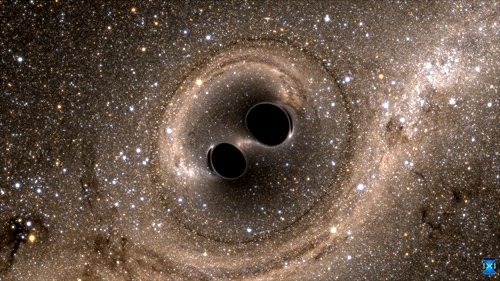14 Korean researchers participate in discovery of gravitational wave
14 Korean researchers participate in discovery of gravitational wave
Posted February. 13, 2016 07:32,
Updated February. 13, 2016 08:02

"A very interesting event.”
Oh Jeong-geun, a researcher at the National Institute of Mathematical Sciences, received an email message around 8 p.m. on September 14 last year. “I was the first among the Korean researchers to learn that the first signal of gravitational wave was discovered,” Oh said at a press conference on detection of gravitational-wave in Seoul on Friday. “I have very vivid memories of the moment because it happened to be my birthday.”
Korean scientists participated in the discovery of gravitational wave, which is considered the biggest advance in the science community since the 2012 discovery of higgs boson dubbed "Particle of the God." Fourteen scientists with the Korean Gravitational-Wave Group, led by Prof. Lee Hyeong-mok of Seoul National University's Astronomy-Physics Department, have participated in "LIGO" experiment since 2009 and Korea has become one of the 16 countries that discovered gravitational wave recently. The 14 researchers are enlisted as co-authors of the study suggesting the discovery of gravitational wave, which is discussed in the February 11 issue of ‘Physical Review Letters.’
The researchers developed software analyzing data that was acquired by "LIGO," a facility for detecting gravitational wave in the U.S. They made it possible to determine if there were actually signals of gravitational wave within three minutes by removing noise from the data recorded in the detector. They also developed software that measures physical quantity of cerebral bodies that generate gravitational wave.
Prof. Lee said, “We predicted waveform that can be observed from LIGO by using the super computer at the Korea Institute of Science and Technology Information.” Researcher Kang said, “Korean researchers also contributed to the creation of a simulation designed to combine two Black Holes, which was announced at a press conference in the U.S. on Thursday.”
The researchers are also considering a Korean project to discover gravitational wave as well. The plan calls for the construction underground of SOGRO, a low frequency detector that is capable of detecting waves in the range of 0.1-10 Hz by using superconducting technology, and measurement of gravitational waves, which are emitted from a white dwarf or a mid-grade Black Hole. No country in the world has occupied this frequency band due to the challenge of strong noise such as seismic waves in the band.
신선미동아사이언스기자 vamie@donga.com
Headline News
- N. Korea launches cyberattacks on S. Korea's defense companies
- Major university hospital professors consider a day off each week
- Italy suffers from fiscal deficits from ‘Super Bonus’ scheme
- Inter Milan secures 20th Serie A title, surpassing AC Milan
- Ruling and opposition prioritize spending amid tax revenue shortfalls







